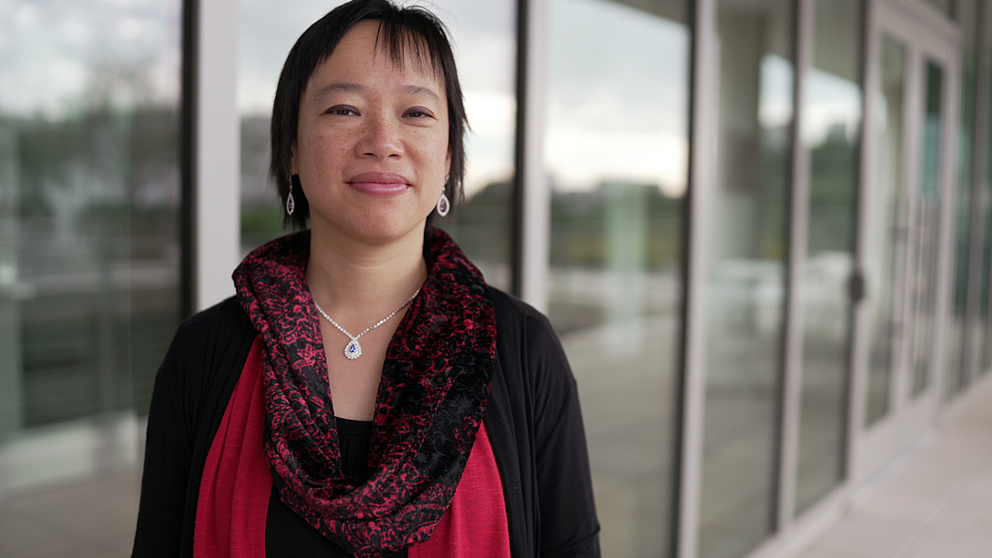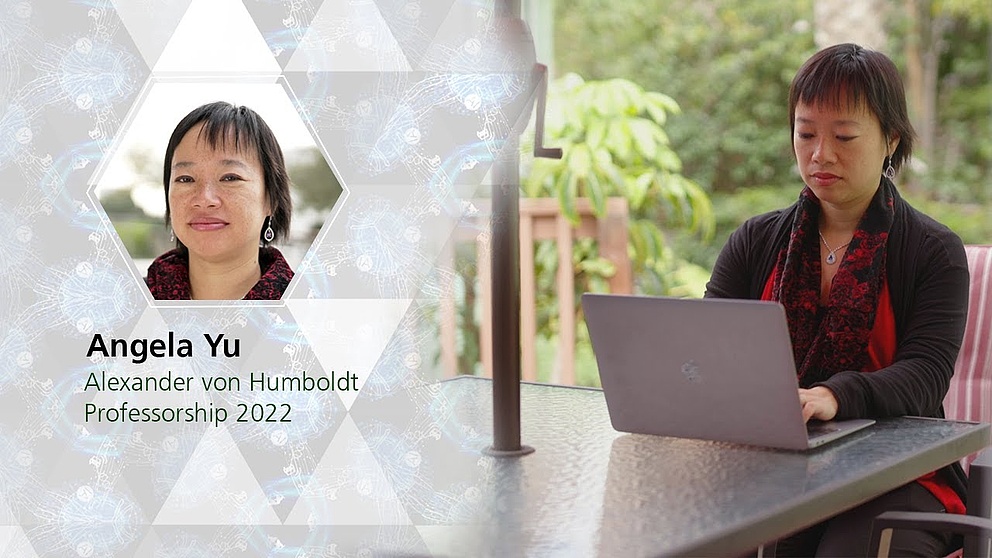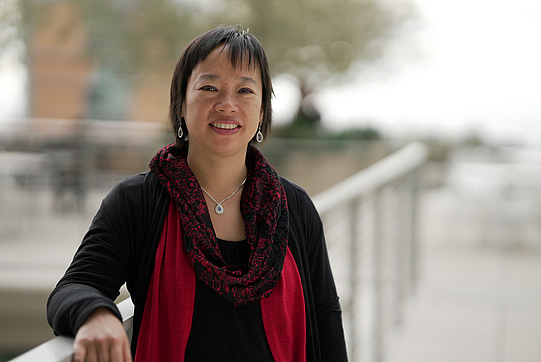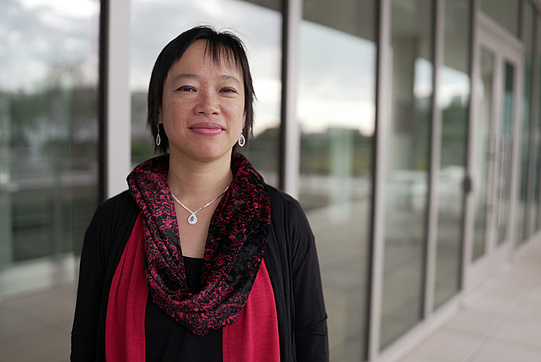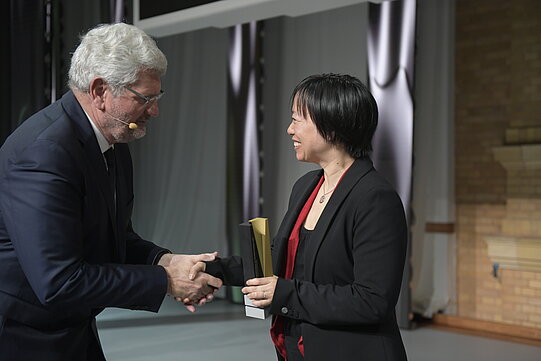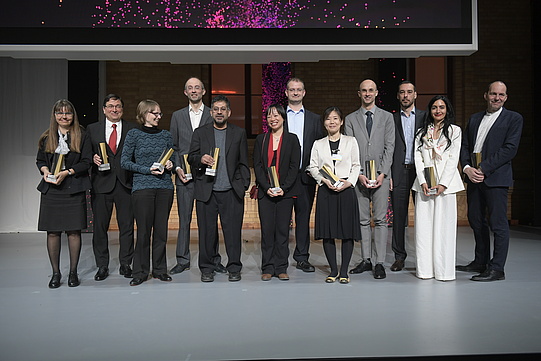Jump to the content
- {{#headlines}}
- {{title}} {{/headlines}}

Contact
Press, Communications and Marketing
Tel.: +49 228 833-144
Fax: +49 228 833-441
presse[at]avh.de
Computational neuroscience
How is information in the brain represented, computed and used to generate intelligent behaviour? Which neural and computational processes occur in relation to various mental and cerebral organic disorders? These are some of the concrete questions investigated by the mathematician and neuroscientist Angela Yu. Employing a multidisciplinary approach that combines theoretical and experimental methods, she wants to establish calculation principles for important cognitive functions such as seeing, learning and decision-making.
Currently, Yu is working on human facial recognition. In this field, machine learning methods produce comparable or even better results than humans when it comes to identifying facial expressions and changes in facial characteristics. However, these black box methods are not able to explain how the human brain processes faces. Using complex modelling, Angela Yu wants to find answers to this question and acquire a fundamental understanding of human facial processing.
Angela Yu’s Humboldt Professorship is designed to reinforce theoretical and methodological core expertise at TU Darmstadt and promote the integration of AI and cognitive science. Darmstadt is a major hub for AI research in Germany: the city is home to the Hessian Center for Artificial Intelligence (hessian.ai) that is operated by 13 universities. Moreover, TU Darmstadt aims to develop comprehensive research competence in human-centred AI. At its Centre for Cognitive Science, computer-assisted solutions and algorithms for sophisticated AI and machine learning problems are developed; insights derived from AI and ML are also used in psychology, kinesiology and neuroscience. How cognitive science can help to improve future interaction with AI is an additional focus of attention.

